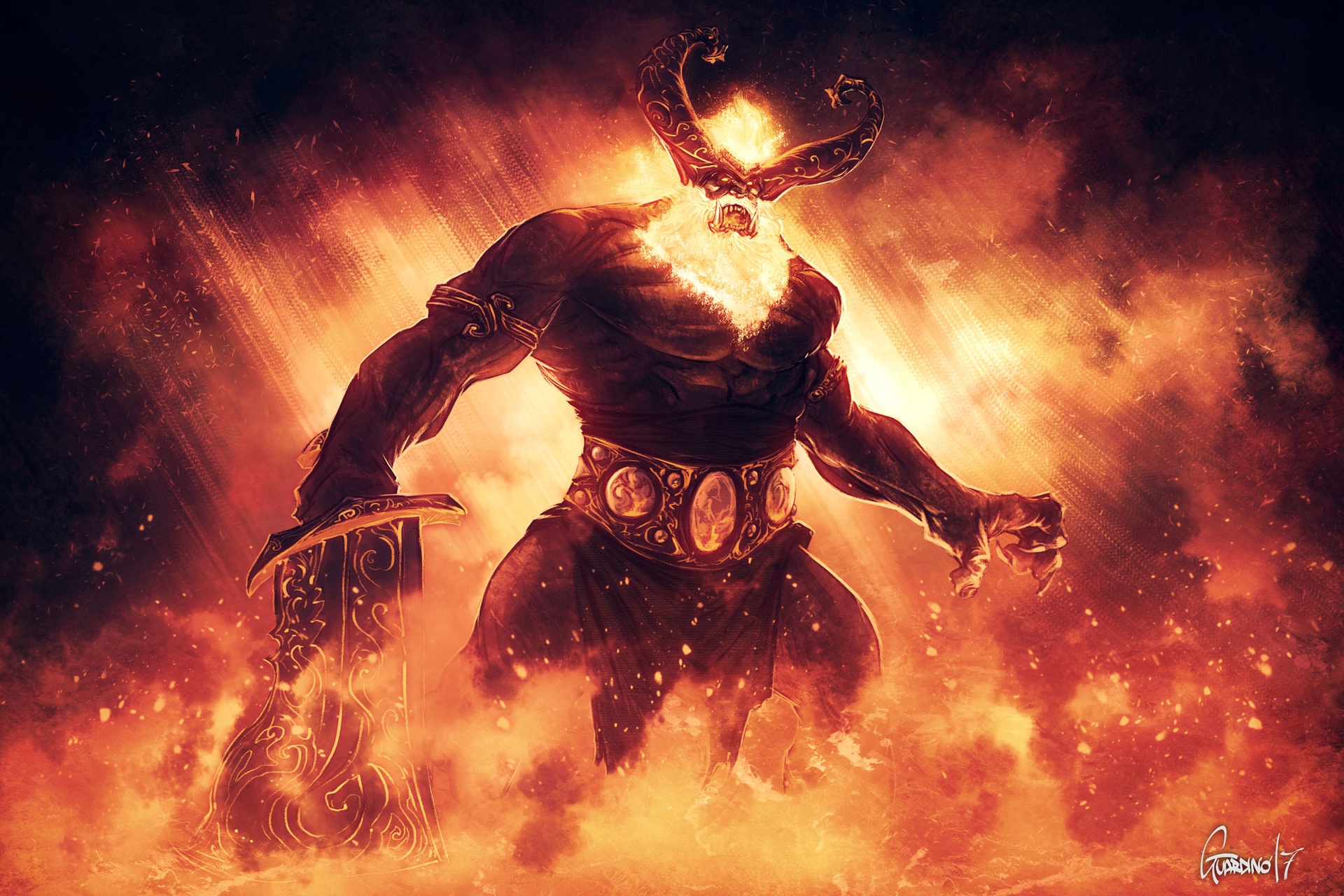
Fire God MyConfinedSpace MyConfinedSpace
Vulcan ( Latin: Vulcanus, in archaically retained spelling also Volcanus, both pronounced [wʊɫˈkaːnʊs]) is the god of fire [1] including the fire of volcanoes, deserts, metalworking and the forge in ancient Roman religion and myth. He is often depicted with a blacksmith's hammer. [2]

Agni God of Fire SMITE Agni God of Fire Pinterest God, Fire and Game
Because fire has played such a pivotal role in the evolution of humanity, it is no surprise that so many civilizations have turned to worship the power that fire beholds. Below is our list of the top 20 most popular fire gods and goddesses that have been documented throughout history. Table of Contents [ show] Fire Goddesses 1.

What is the god of fire?
The Greek god of fire, forges, metalworking and technology, Hephaestus was a son of Zeus and the goddess Hera. He learned his craft among the fumes and fire of volcanoes. So good was he at his job, that he became the blacksmith for the Olympian gods. He would create the best weapons, armor, and jewelry for them.

Gods of Fire from Mythology and Folklore Part 1 YouTube
Egyptian mythology Ra, fire god of the sun, light, warmth, and growth Sekhmet, protective lioness goddess of war, along with some elements of disease and curing of disease. Sometimes referenced in relation to the sun and its power, so possibly had to do with upkeep of the sun at times and fire
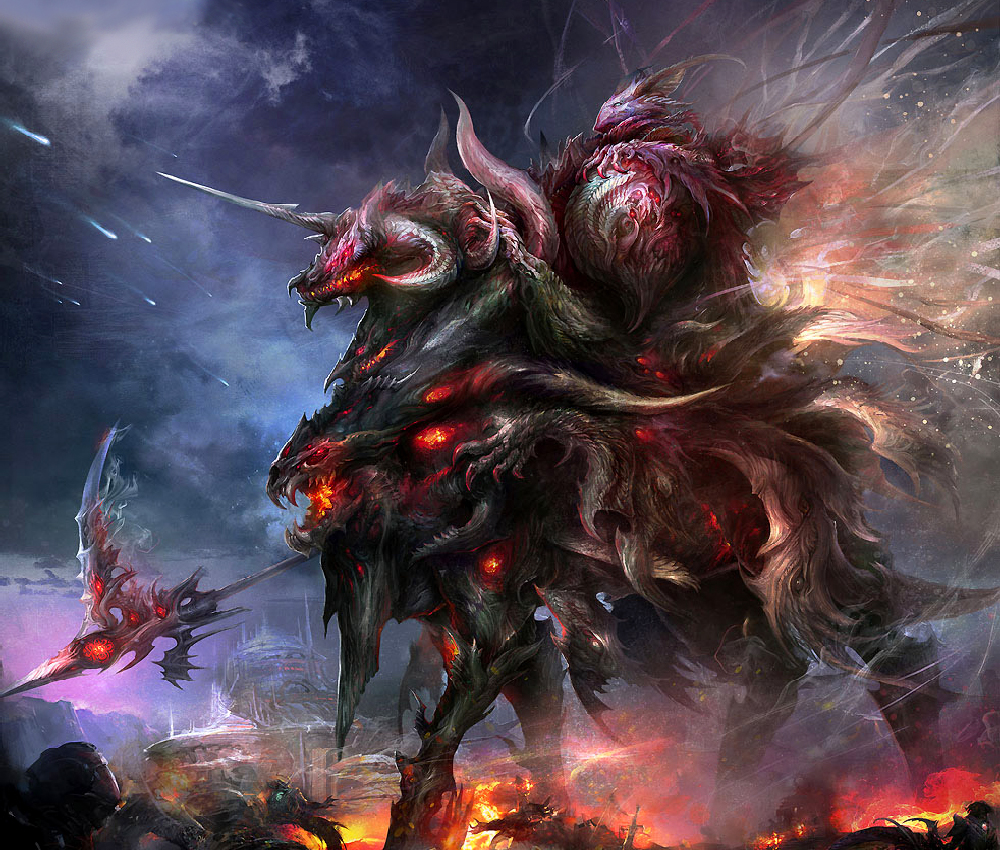
God of Fire Art ID 22963 Art Abyss
Mythology Craft of Hephaestus Vulcan Presenting the Arms of Achilles to Thetis by Peter Paul Rubens. Thetis Receiving the Weapons of Achilles from Hephaestus by Anthony van Dyck (1630-1632) Hephaestus had his own palace on Olympus, containing his workshop with anvil and twenty bellows that worked at his bidding. [10]

Agni God of Fire by molee God art, Hinduism art, Art
Vulcan, in Roman religion, god of fire, particularly in its destructive aspects as volcanoes or conflagrations.Poetically, he is given all the attributes of the Greek Hephaestus.His worship was very ancient, and at Rome he had his own priest (flamen).His chief festival, the Volcanalia, was held on August 23 and was marked by a rite of unknown significance: the heads of Roman families threw.

Hephaestus God of fire and blacksmithing who created weapons for the gods. Greek Gods And
The god of fire has made appearances in a range of modern media, including manga, anime, and films. Kagutsuchi often takes on the appearance of a dragon or a snake in popular culture. Many of these portrayals emphasize Kagutsuchi's destructive potential, depicting the deity as a malevolent force capable of causing great harm.
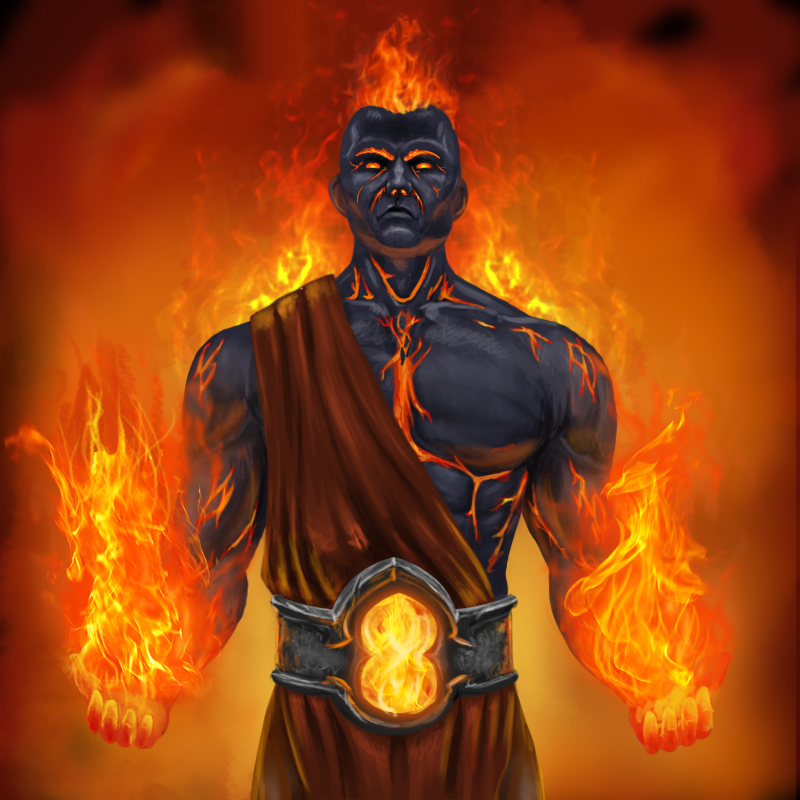
Game art XPLAI
Hephaestus is one of the most famous fire deities. He's one of the Twelve Olympians, serving as the god of blacksmith and fire. His Roman equivalent is Vulcan. Hephaestus was the blacksmith of the gods, harnessing the power of fire to forge fantastical weapons.
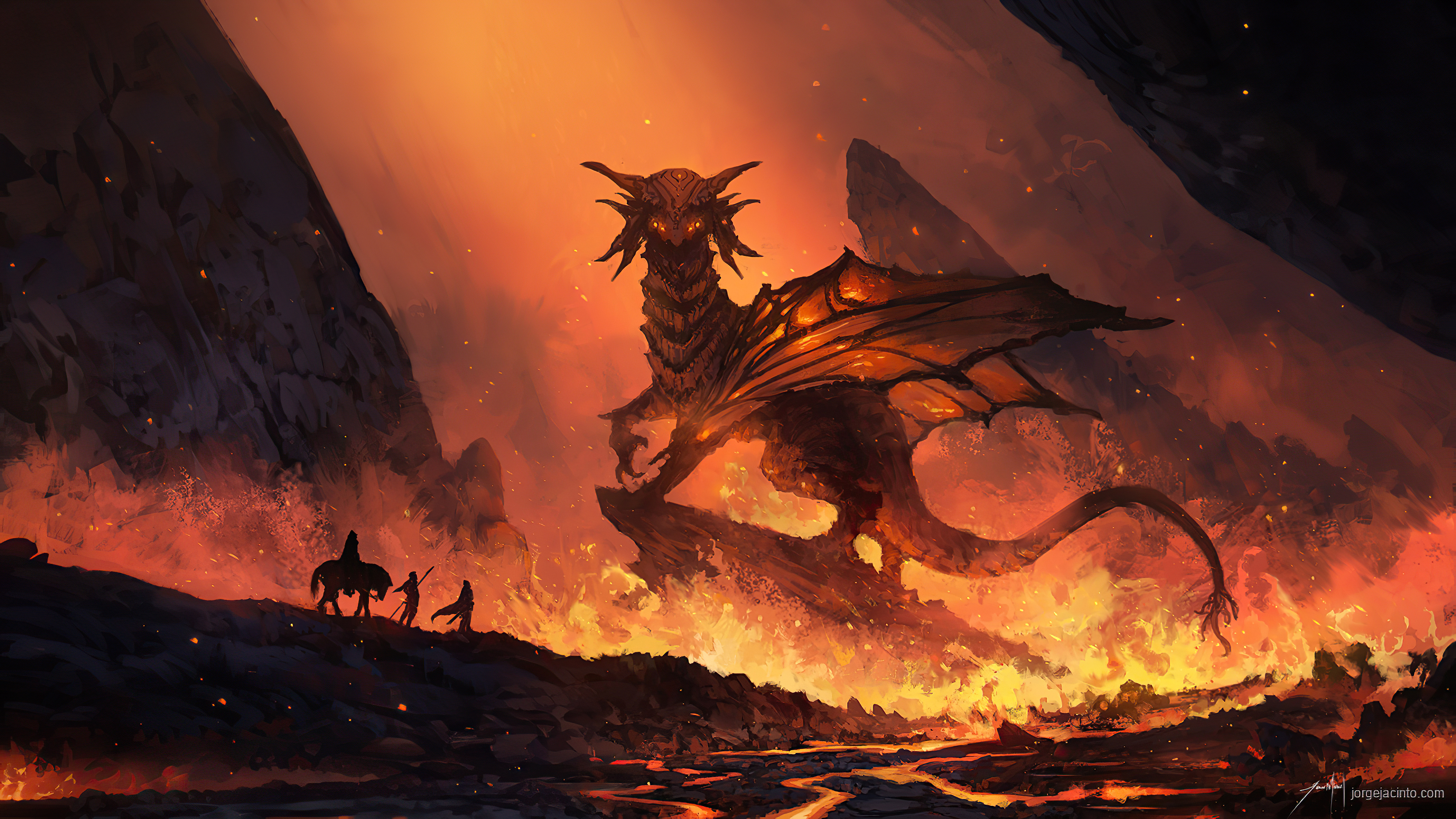
God Of Fire Dragon 4k, HD Artist, 4k Wallpapers, Images, Backgrounds, Photos and Pictures
Hephaestus, in Greek mythology, the god of fire. Originally a deity of Asia Minor and the adjoining islands (in particular Lemnos ), Hephaestus had an important place of worship at the Lycian Olympus. His cult reached Athens not later than about 600 bce (although it scarcely touched Greece proper) and arrived in Campania not long afterward.
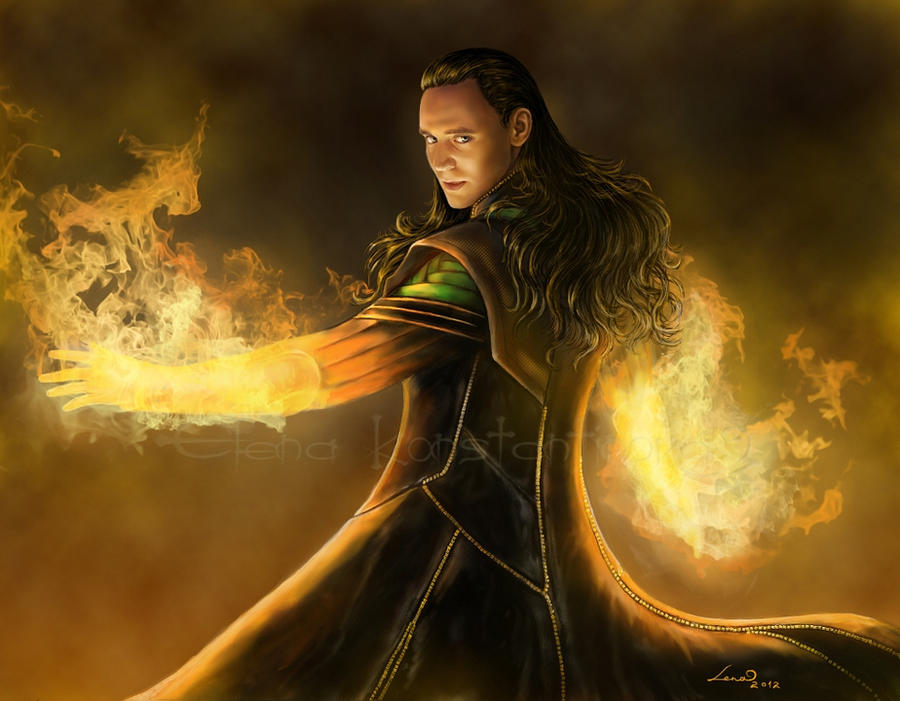
Loki God Of Fire by legadema666 on DeviantArt
1. Volcano Goddesses Lava and the volcanic fire are quite majestic and awe-inspiring, but at the same time, destructive. For this reason, volcano goddesses are often extremely powerful and formidable. Those who lived in the vicinity of volcanoes, and under its constant threat, developed a number of myths and stories about volcano gods.

Who Are Gods of Fire in Norse Mythology? Norse, Norse mythology, Mythology
1. Agni - Hindu god of fire. Agni is a significant deity in Hindu mythology and is regarded as the god of fire. He is believed to be the mediator between gods and humans and is considered the mouth of the gods. Agni is described as having two faces, seven tongues, and three legs. He is often depicted riding a chariot pulled by fiery horses.
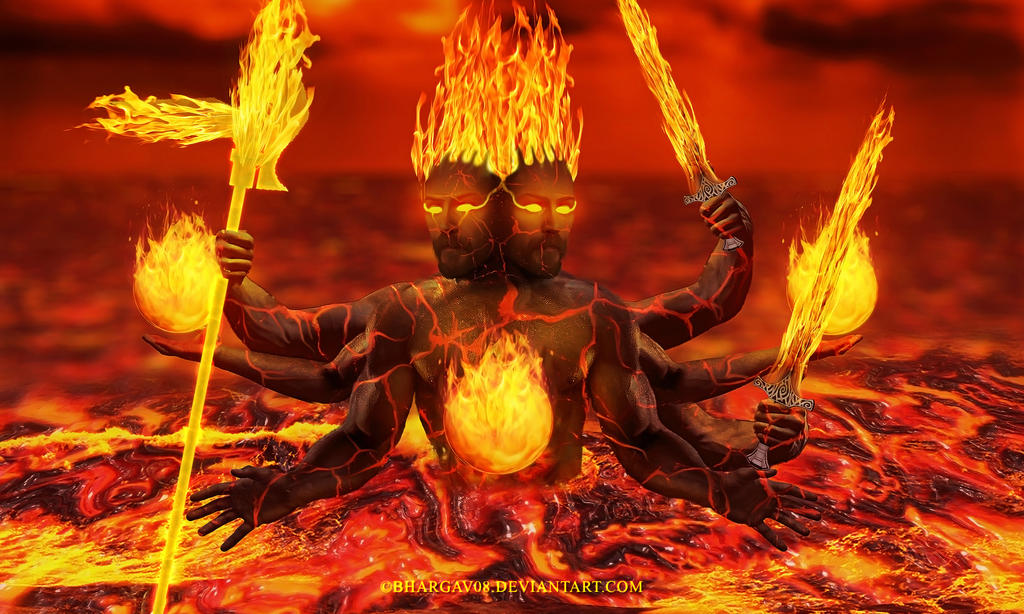
AGNI The God of Fire by Bhargav08 on DeviantArt
Kagutsuchi is a being of fire who constantly emits flames. He is hard to look at and impossible to touch without being burned. Difficult to control, when he is focused he burns with creativity, relating to the power of his birth. He is connected to volcanoes and seismic activities. Because of his creative powers, Kagutsuchi is worshiped by.

Semargl Slavic God of Fire Франсиско гойя, Мифология, Художники
1. Hestia Not many goddesses are associated with fire in Greek mythology. Hestia is one of the select few being the goddess of the hearth and its fires. She is also a part of the 12 olympic gods Greek mythology wraps itself around. Greek home life was centered around the hearth as it offered warmth and provided a place to cook meals.
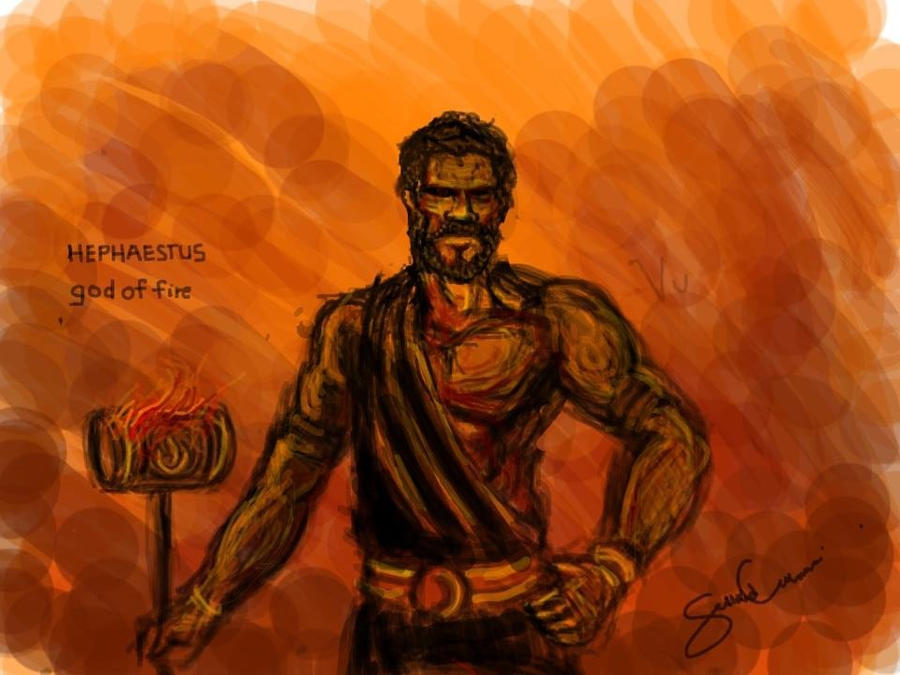
Hephaestus, fire god by seththelordofstorms on DeviantArt
The Greek god Hephaestus was a famed blacksmith, renowned for the skill of metallurgy. Markedly the only conventionally unattractive of all the Greek gods and goddesses, Hephaestus suffered in life from a multitude of physical and emotional ailments. Hephaestus with his tragic character was arguably the most human-like of the Greek gods. He fell from
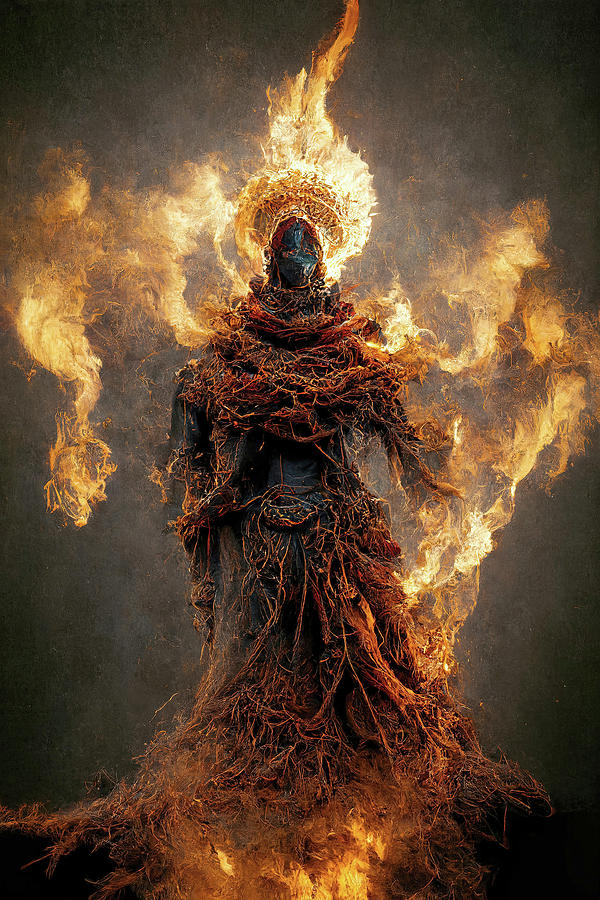
God Of Fire Digital Art by Ron Weathers Fine Art America
The fire element is one of the fiercest and yet required for our survival. Our ancestors needed it for light, to cook their food, to warm their bodies in the cold, and to ward off predators. In ancient times, they worshipped it. From fire sprang the mighty gods and goddesses of fire.

Prometheus God of Flame level 4 by on deviantART my warriors
Agni is the Hindu god of fire. He is regarded as the friend and protector of humanity, in particular, he safeguards the home. Various forms of fire are associated with Agni and include the sun, lightning, comets, sacrificial fire, domestic fires, the fire of the funeral pyre, and the digestive fire which is within all humans.